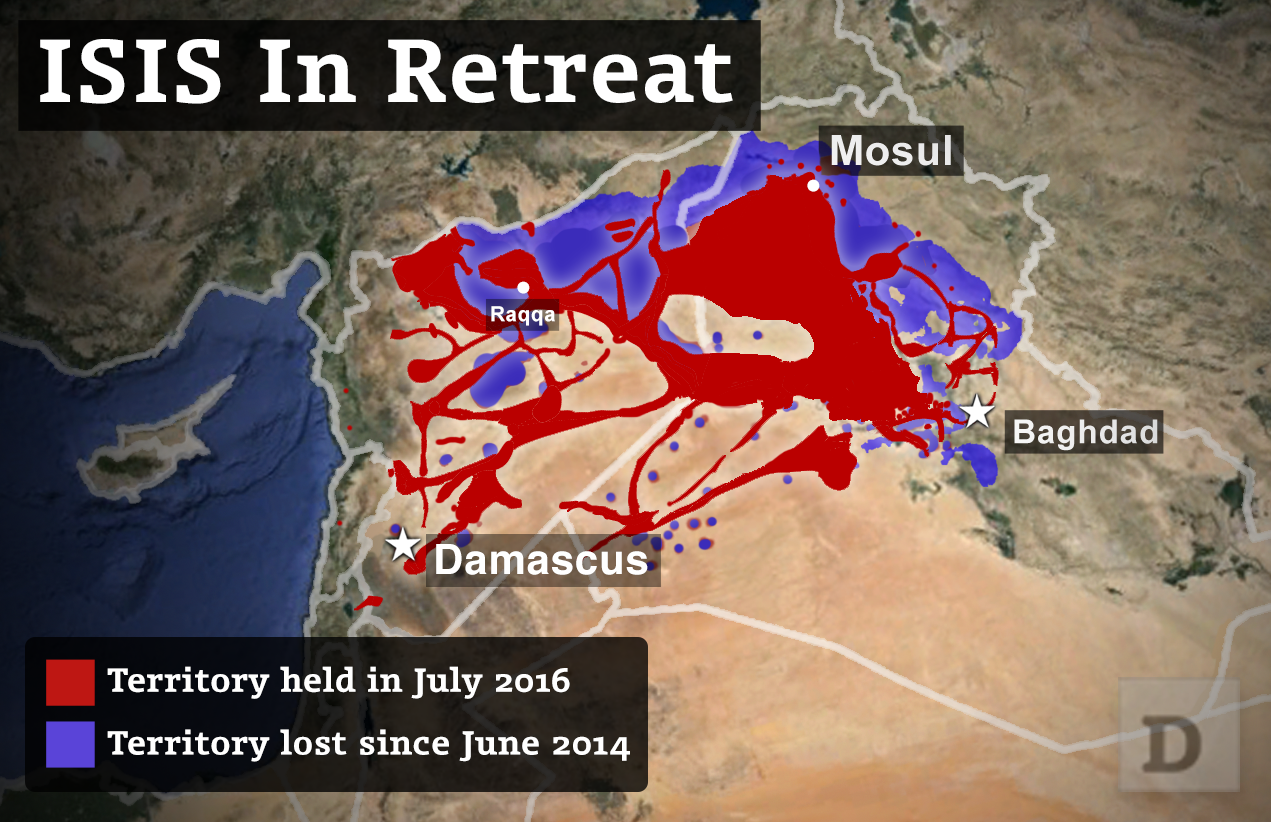
In this Nov. 1, 2014 photo, Kurdish fighters have a short tea break from fighting in Kobani, Syria. AP / JAKE SIMKIN
US Forces Aren’t Working With Russians Against ISIS, SOCOM Chief Says
But information-sharing with coalition partners has never been better, says the general in charge of special operations troops.
TAMPA, Florida — Gen. Raymond Thomas, the head of U.S. Special Operations Command, says his forces aren’t sharing information with Russian forces in Syria or Iraq.
“I can guarantee you there is no integration going on with the Russians,” he told an audience at the annual Special Operations Forces Industry Conference here.
By contrast, he said, the U.S. was working more closely than ever with partners in the anti-ISIS coalition .
“We’ve been sharing and enabling our partners like never before,” he said, adding that those partners have not lost their appetite for working with the United States since Donald Trump became commander in chief. “I have not seen any change in partner nation involvement.”
The remarks came hours after the president acknowledged giving Russian officials sensitive information about the ISIS fight.
...to terrorism and airline flight safety. Humanitarian reasons, plus I want Russia to greatly step up their fight against ISIS & terrorism.
— Donald J. Trump (@realDonaldTrump) May 16, 2017
Thomas, who did not mention Trump by name, referred specific questions about what Russia was or was not doing to U.S. Central Command.
Other military leaders have been more outspoken in their concerns about working with Russia in Syria. In January, Air Force Chief of Staff Gen. David Goldfein said discrepancies between Russian statements and actions — specifically, Russian airstrikes on anti-Assad forces — made him skeptical about a partnership.
“They say they’re going after ISIL, but their actions don’t seem to align with what they say they’re there to do. And so we struggle sometimes to understand exactly what their objectives are because we’re not seeing them act in a way that aligns with what they have said they’re there to do,” he said.
Russian airstrikes have mostly focused on anti-Assad forces whereas ISIS is located more to the West and North, as illustrated on this map.

The Russian government has also denied allegations of Syrian war crimes such as the use of chemical weapons against civilians, despite evidence compiled in U.N. reports .


